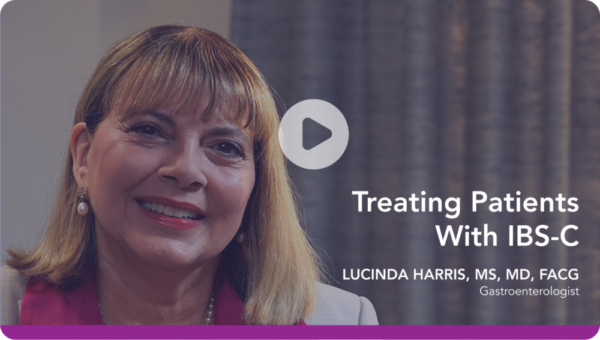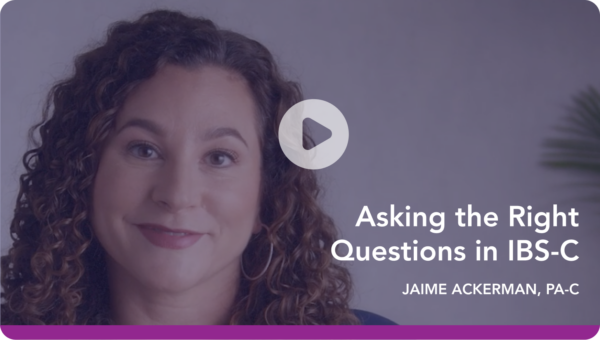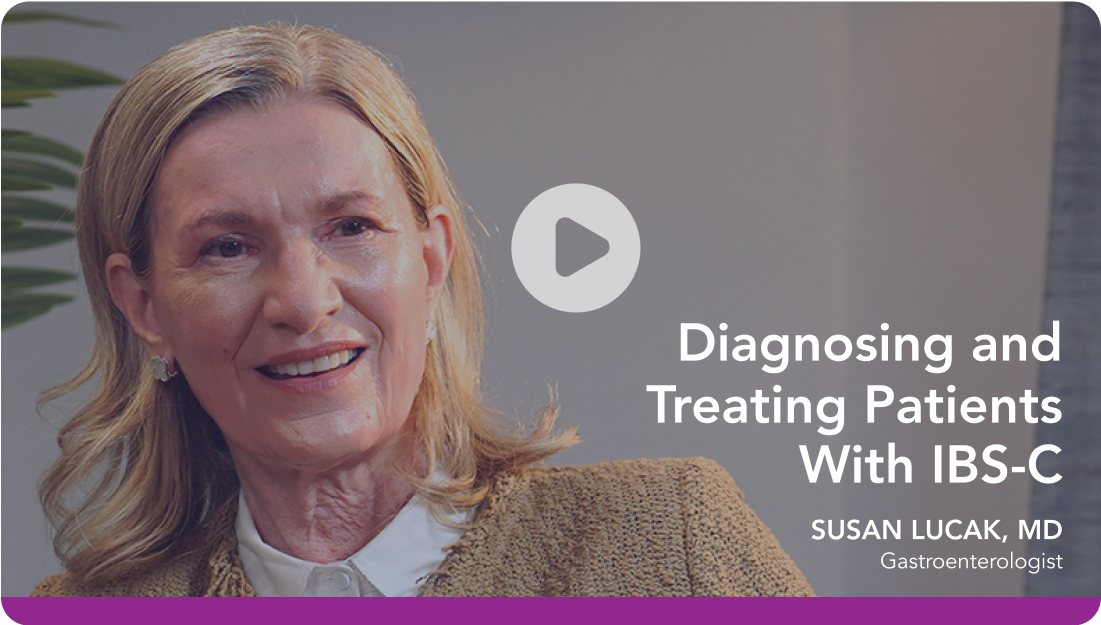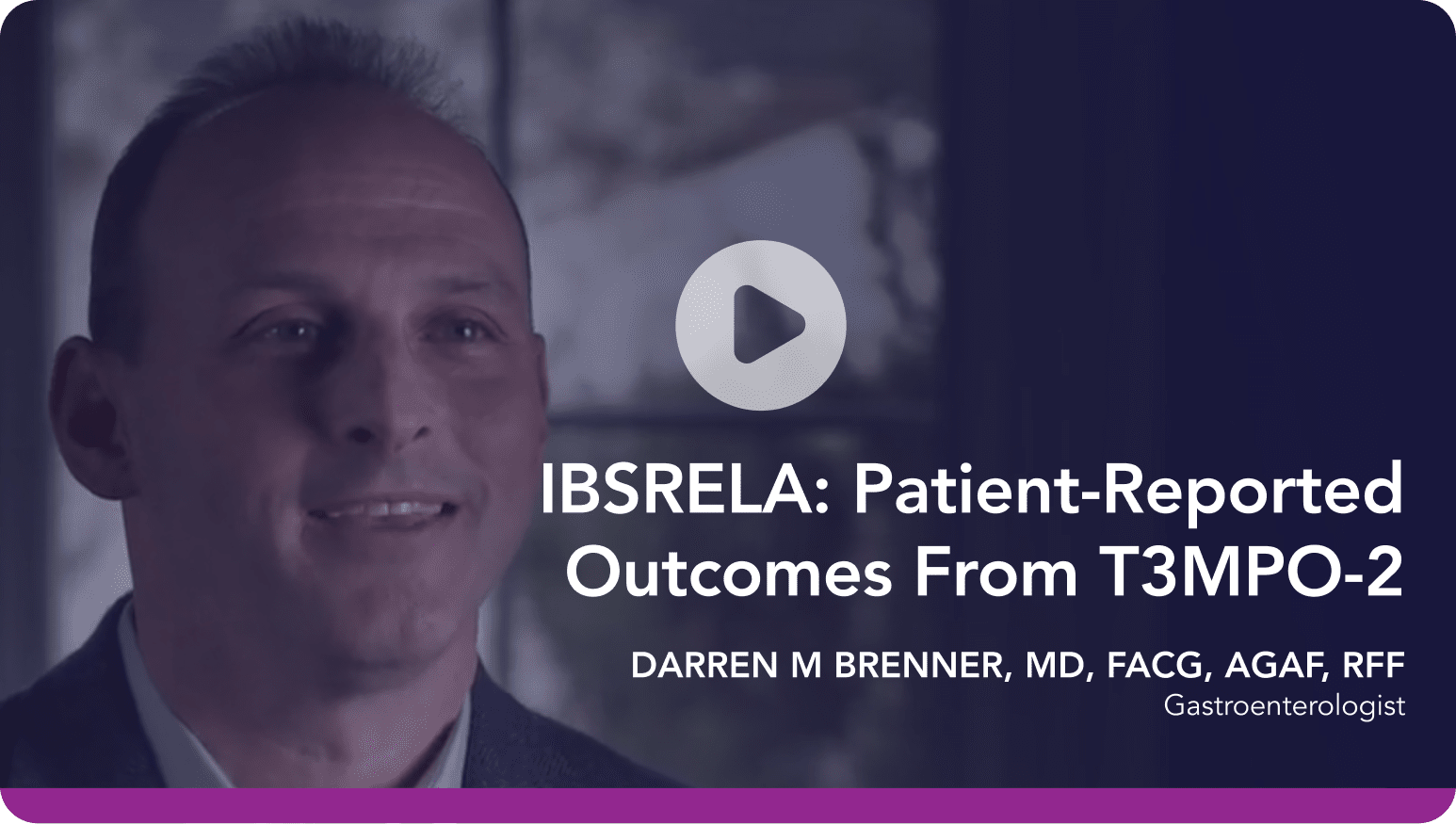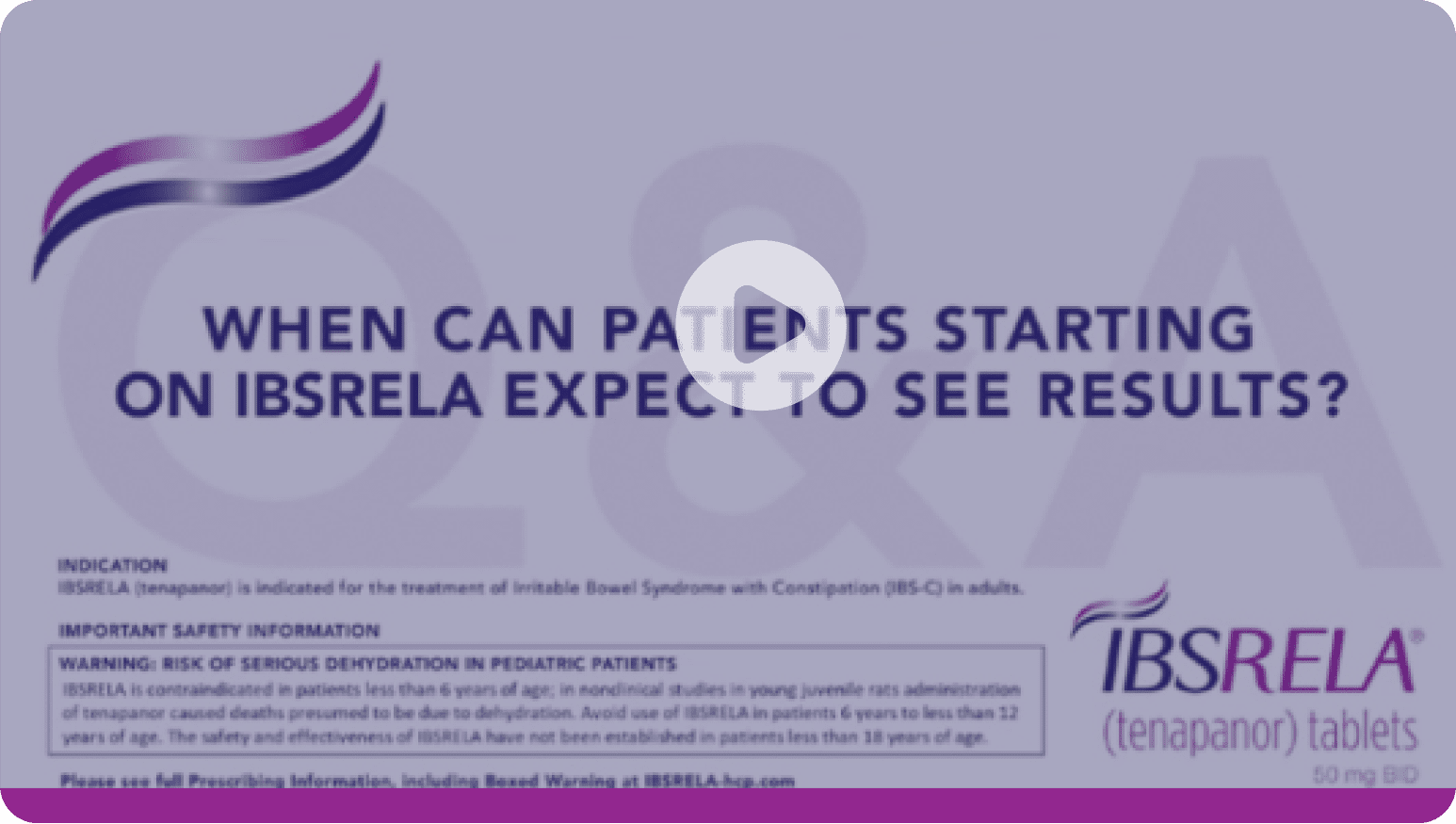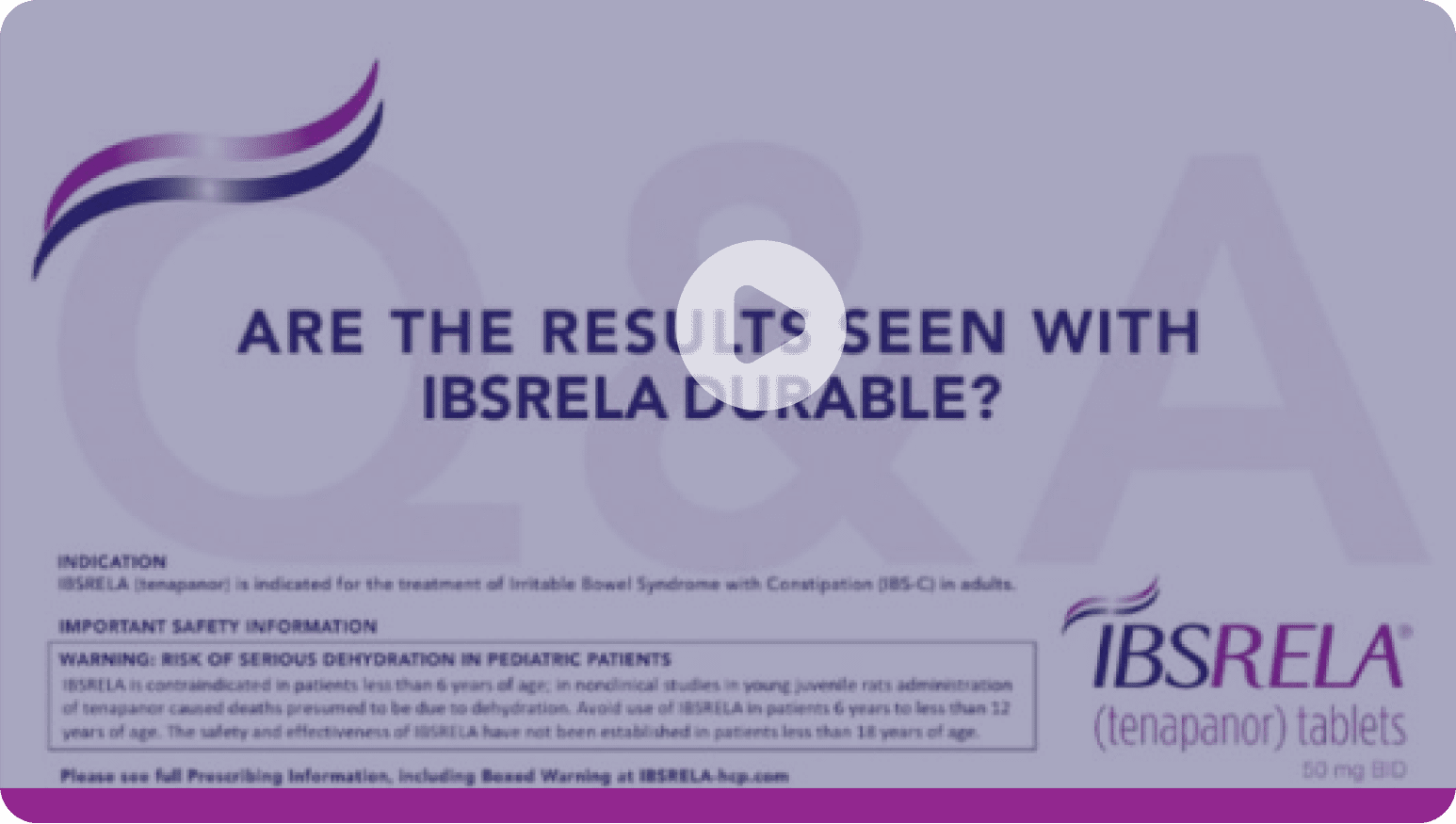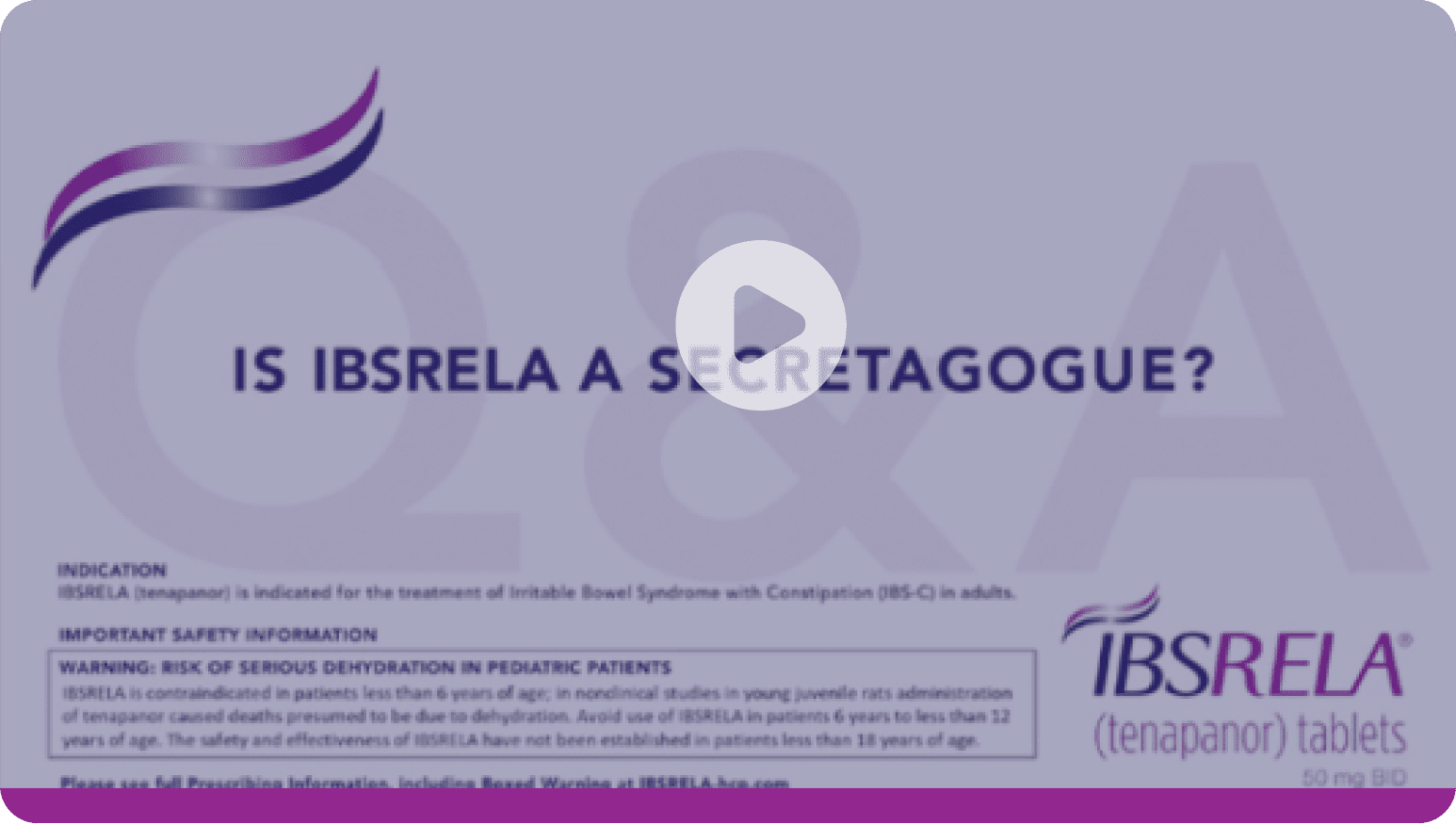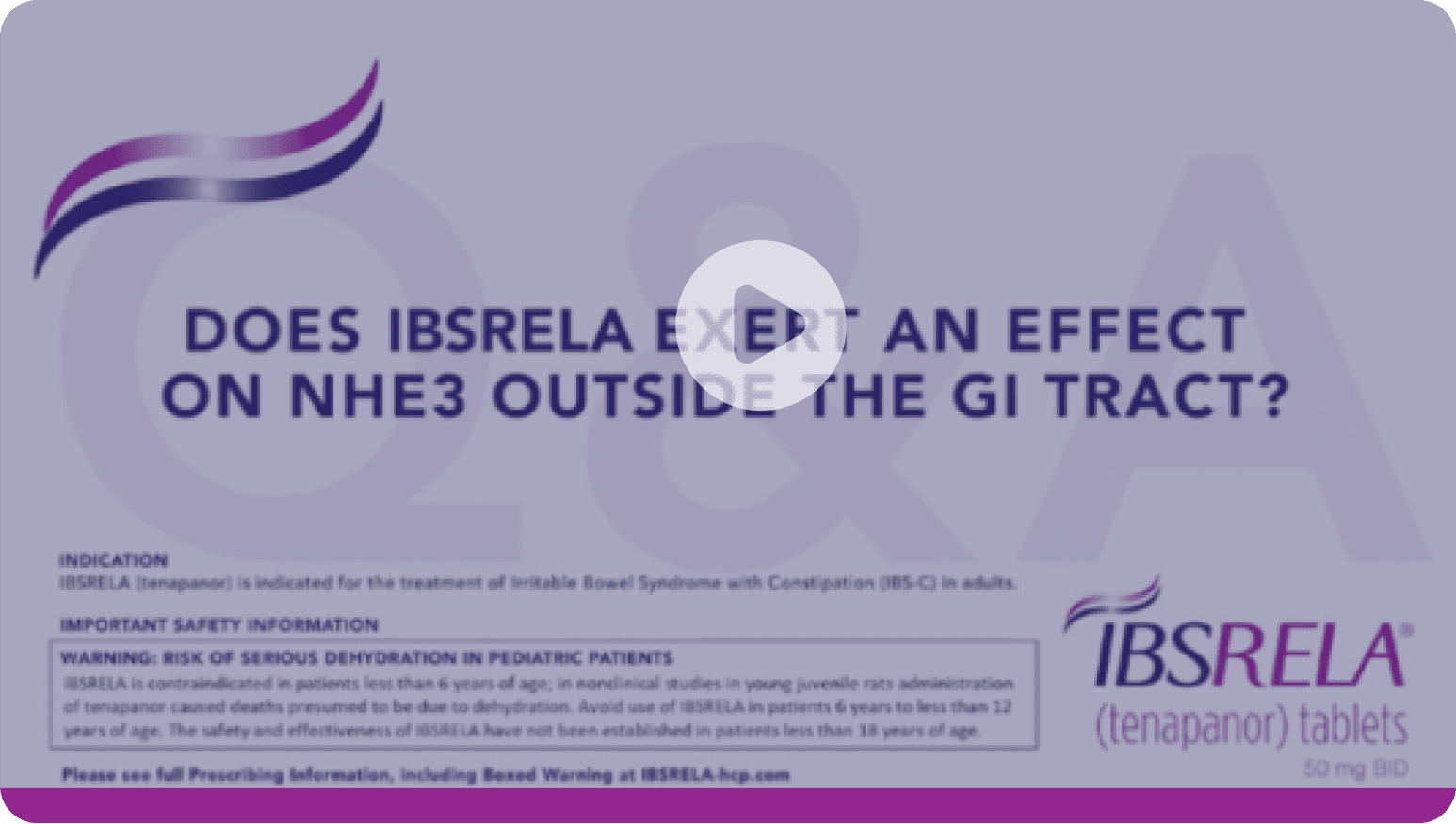

FLIP THE SCRIPT on IBS-C:
Peer Perspectives

Hear Experts Discuss IBSRELA and Making Treatment Decisions in IBS-C

Featured Videos:
Diagnosing and Treating Patients With IBS‑C
Dr Susan Lucak discusses her treatment expectations in IBS-C and the importance of exploring different options for adult patients.
The Impact of IBS-C and Finding IBSRELA
Regina is a longtime IBS-C sufferer. Her symptoms have kept her from doing what she enjoys. Hear how IBSRELA has helped her.

Meet Our Speakers
Attend a clinical overview of IBSRELA, led by our experts, at a speaker program or conference.
Gastroenterologists

Darren M Brenner, MD
Chicago, IL
Brooks D Cash, MD
Houston, TX
Bryan Curtin, MD
Baltimore, MD
Kavita R Kongara, MD
Atlanta, GA
Susan Lucak, MD
New York, NY
Satish SC Rao, MD
Augusta, GA
Gregory Sayuk, MD
St Louis, MO
Philip Schoenfeld, MD
Detroit, MI
Lavanya Viswanathan, MD
Houston, TXAdvanced Practice Providers

Jaime G Ackerman, PA-C
Marietta, GA
Christina Hanson, NP
Denver, CO
Amy Ladewski, PA-C
Chicago, IL
Kim Orleck, PA-C
Atlanta, GA
Hear from the IBS-C Community
Sponsored by Ardelyx

INDICATION
IBSRELA (tenapanor) is indicated for the treatment of Irritable Bowel Syndrome with Constipation (IBS-C) in adults.
IMPORTANT SAFETY INFORMATION
WARNING: RISK OF SERIOUS DEHYDRATION IN PEDIATRIC PATIENTS
IBSRELA is contraindicated in patients less than 6 years of age; in nonclinical studies in young juvenile rats administration of tenapanor caused deaths presumed to be due to dehydration. Avoid use of IBSRELA in patients 6 years to less than 12 years of age. The safety and effectiveness of IBSRELA have not been established in patients less than 18 years of age.
CONTRAINDICATIONS
- IBSRELA is contraindicated in patients less than 6 years of age due to the risk of serious dehydration.
- IBSRELA is contraindicated in patients with known or suspected mechanical gastrointestinal obstruction.
WARNINGS AND PRECAUTIONS
Risk of Serious Dehydration in Pediatric Patients
- IBSRELA is contraindicated in patients below 6 years of age. The safety and effectiveness of IBSRELA in patients less than 18 years of age have not been established. In young juvenile rats (less than 1 week old; approximate human age equivalent of less than 2 years of age), decreased body weight and deaths occurred, presumed to be due to dehydration, following oral administration of tenapanor. There are no data available in older juvenile rats (human age equivalent 2 years to less than 12 years).
- Avoid the use of IBSRELA in patients 6 years to less than 12 years of age. Although there are no data in older juvenile rats, given the deaths in younger rats and the lack of clinical safety and efficacy data in pediatric patients, avoid the use of IBSRELA in patients 6 years to less than 12 years of age.
Diarrhea
Diarrhea was the most common adverse reaction in two randomized, double-blind, placebo-controlled trials of IBS-C. Severe diarrhea was reported in 2.5% of IBSRELA-treated patients. If severe diarrhea occurs, suspend dosing and rehydrate patient.
MOST COMMON ADVERSE REACTIONS
The most common adverse reactions in IBSRELA-treated patients (incidence ≥2% and greater than placebo) were: diarrhea (16% vs 4% placebo), abdominal distension (3% vs <1%), flatulence (3% vs 1%) and dizziness (2% vs <1%).


